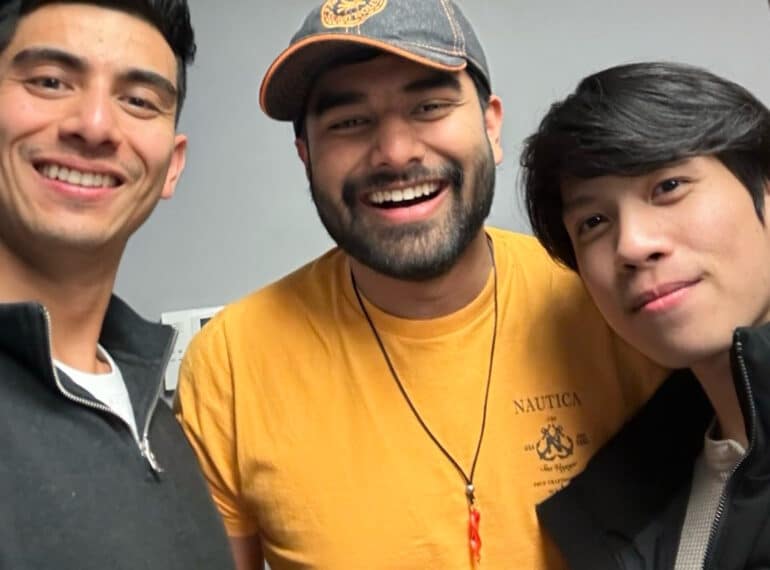
Pavir Patel sent the Headmaster this photo of himself, Akshat Sharma and Richard Ou connecting in San Francisco.
Richard (OE 2010-2015) brought us the story behind the image: “All three of us are founders looking to build billion-dollar companies in Silicon Valley. Quite a few QE boys that I’ve met in the US have been entrepreneurs, too, all having raised not so insignificant amounts of capital. It feels like we’re following in the footsteps of Demis Hassabis and Mustafa Suleyman maybe a few years or a decade behind.
“What I am really excited about is more people from QE coming to the US. I think this is the place to be.”
Pavir (OE 2003–2010) and Akshat (OE 2012–2019) are part of the long-established international Entrepreneur First accelerator, which runs one of its four programmes in San Francisco. “However, they’d not met until after Pavir’s encounter with me,” says Richard. “I met Pavir at a FinTech AI hackathon hosted at the Digital Garage office in San Francisco. The conversation went something like this:”
Richard: “Where in the UK are you from?”
Pavir: “London, what about you?”
Richard: “I’m from London as well. Whereabouts?”
Pavir: “Stratford, and you?”
Richard: “Highgate”
Pavir: “I used to go to school up north of Highgate!”
Richard: “Really, where?”
Pavir: “QE Boys”
Richard: “Holy sh*t, I went to QE as well!”
Richard later met Akshat at the Entrepreneur First office.
As for Pavir and Akshat, they knew each other through being in the same accelerator, but did not realise the full extent of their connection until a conversation in a Waymo (self-driving car) turned to their backgrounds. “It was surreal,” says Akshat. “We were mates already and were speaking about our homes in the UK and school experiences…and there was a moment of realisation of ‘Wait a second – that sounds very familiar’ when we realised we both went to QE!”
Since then, the three have created a group chat and have been expanding it to include more OEs in San Francisco.
 Richard said he realised even before going to university where he needed to be to pursue his goal of founding and growing a startup. “I knew that if I wanted to do it, the only place I could was the US. The problem was that education in the US was so expensive – four years of a degree course can easily be $250,000.”
Richard said he realised even before going to university where he needed to be to pursue his goal of founding and growing a startup. “I knew that if I wanted to do it, the only place I could was the US. The problem was that education in the US was so expensive – four years of a degree course can easily be $250,000.”
The solution he arrived at was to go to King’s College London, majoring in Physics (“my passion”) for his first degree and then come to the US for a Master’s degree at the University of Pennsylvania – “only two years!” He worked out some further ways to reduce the financial burden, including becoming a Resident Advisor (RA) – a peer mentor for other students – which comes with the major plus that free housing and food are provided.
The idea for his business came about when he graduated from Penn. last year and was looking for a graduation photographer. “I realised it was really hard – there is not really any infrastructure for freelancing.”
With time on his hands, he worked out a plan for a business to put that right, checking that he had a Minimum Viable Business (MVB). He shared the plan with the photographer he had eventually found, Jerry Cai. “As soon as I pitched it to him, he said: ‘I want in.’”
The two became co-founders of Agorum, described on its website as “a freelancer marketplace connecting clients with skilled creatives”. They have started initially by focusing on freelancers who require a physical presence for their work – photographers, DJs and private chefs.
The process has not always been easy. “Funding was difficult at first. We tried raising funds last year when the economy was not doing very well.”
Since then, however, they have been scaling rapidly, and Richard is focused on taking the business global. Agorum was recently valued at $10m.
“I think what changed things was moving to the Bay area: I don’t think there is an eco-system like the Bay’s that exists anywhere else in the world.
He acknowledges the help provided by his accelerator – VIP-X (different from Pavir’s and Akshat’s). VIP-X is run by the University of Pennsylvania’s Wharton business school and caters primarily for people associated with Penn. and Wharton. It takes no equity and offers what are essentially grants, not loans.
“I think one of the hardest parts of doing a startup is the loneliness and distance that comes with it,” says Richard. “Few people can relate.” In particular, he has found the constant need for absolute discretion about his plans for the business hard. “As the CEO, there is only so much you can ever say.”
“As my role has changed from managing a team of 1.5 people to now a team of ten, the problems are constantly evolving.”
“The thing is persistence,” Richard says, stressing the importance of listening to clients, who sometimes provide the only clue as to a way forward. “There is something about this gut instinct – and it usually comes from your customer. It becomes your driving force.”
Richard has no doubt as to the source of his strength. “When I look back at my time at QE, it was hard. A lot of homework and pressure. Retrospectively, that is what helped, giving me the resilience I am drawing on now. A lot of people have shared that with me, too. Things were always hard, but that raised your tolerance for a lot of things.”
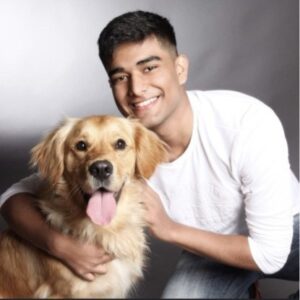 For his part, Akshat is currently building a company called Orbit. The sad truth about the current digital age is that “we have never been historically unhappier,” he says. “Orbit will empower people by making mental health as transparent and actionable as physical health through a non-invasive brain wearable. Orbit is unlocking cognition by building the first foundation model of the brain!”
For his part, Akshat is currently building a company called Orbit. The sad truth about the current digital age is that “we have never been historically unhappier,” he says. “Orbit will empower people by making mental health as transparent and actionable as physical health through a non-invasive brain wearable. Orbit is unlocking cognition by building the first foundation model of the brain!”
In addition to his work with Entrepreneur First, Akshat is part of the first cohort of Founders – the University of Cambridge’s own accelerator programme. He graduated from Cambridge in Biomedical Engineering last year, launching Orbit at the start of 2024.
“At the Neuro Optics Lab [in Cambridge], I developed the first, and only, brain computer interface using HD DOT, a novel imaging approach to track human brain function at comparable resolutions to an fMRI. This modality, being cheap, portable and high resolution, is uniquely positioned to create the foundation model of our brains!”
Akshat has won multiple awards at international conferences and is writing a first-author paper on the subject.
By leveraging the novel wearable technology, Orbit is focussing on making brain-tracking as simple and accessible as Fitbit made fitness-tracking – “all in the comfort of your favourite baseball cap or beanie!” as he puts it.
“With each version, Orbit builds the largest, real-world brain data-sets to unlock new secrets about the way we perceive the world around us – our cognition. It starts by understanding mental workload and aims to progress to complex mental states, including anxiety, stress and depression. Each version helps us regain control of a new emotion, at each step regaining happiness through giving us a deeper understanding and control of our brain.”
 Finally, Pavir Patel’s business is Outerop. Like Akshat’s business, it launched at the beginning of this year. Outerop helps grow businesses online using AI, making it easier for them to build high-quality, reliable Large Language Model (LLM) products and to start creating self-optimising LLM pipelines (a series of steps where the output of one is the input of the other). Its slogan is: “Build GenAI products your customers love.”
Finally, Pavir Patel’s business is Outerop. Like Akshat’s business, it launched at the beginning of this year. Outerop helps grow businesses online using AI, making it easier for them to build high-quality, reliable Large Language Model (LLM) products and to start creating self-optimising LLM pipelines (a series of steps where the output of one is the input of the other). Its slogan is: “Build GenAI products your customers love.”
Since reading Economics at Nottingham, Pavir has, he says, “done all sorts – from incubating J P Morgan’s first AI startup doing NLP; setting up their FinTech team in Asia (Hong Kong was awesome!) and scaling Europe’s leading broker/crypto exchange, Bitpanda Pro, to spinning off a company with a Series A raise [a company’s first significant round of venture-capital financing] to launching an e-commerce business with my wife”.
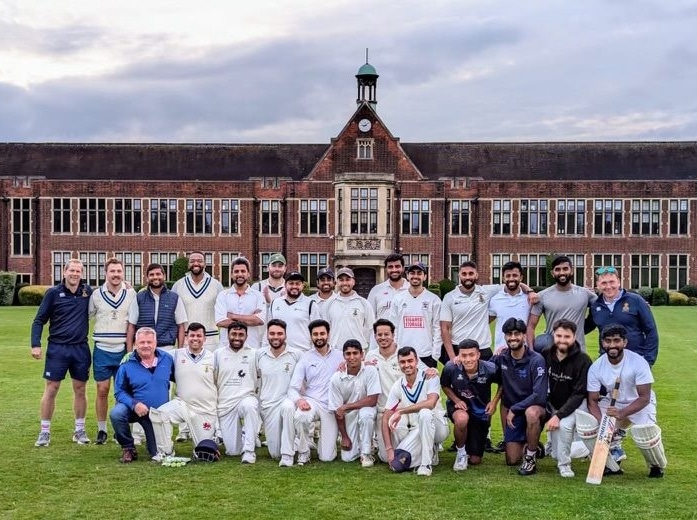


 Richard said he realised even before going to university where he needed to be to pursue his goal of founding and growing a startup. “I knew that if I wanted to do it, the only place I could was the US. The problem was that education in the US was so expensive – four years of a degree course can easily be $250,000.”
Richard said he realised even before going to university where he needed to be to pursue his goal of founding and growing a startup. “I knew that if I wanted to do it, the only place I could was the US. The problem was that education in the US was so expensive – four years of a degree course can easily be $250,000.” For his part, Akshat is currently building a company called
For his part, Akshat is currently building a company called  Finally, Pavir Patel’s business is
Finally, Pavir Patel’s business is 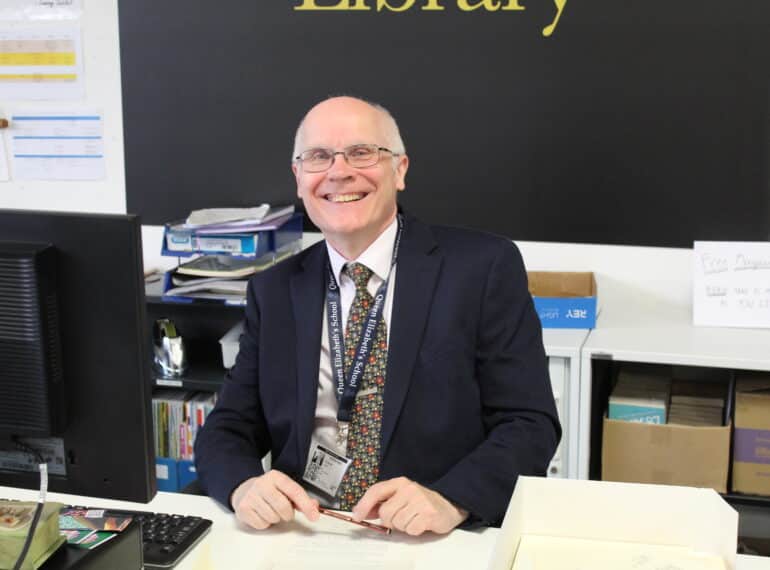
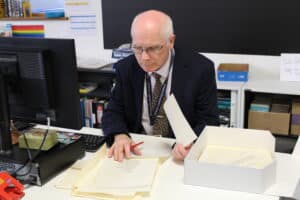 Shaun is a History graduate and qualified as a History teacher, even doing some supply teaching at QE in 1983. “Obviously I have a love of history, and I have always been grateful for my education at QE, where I had seven happy years,” he says.
Shaun is a History graduate and qualified as a History teacher, even doing some supply teaching at QE in 1983. “Obviously I have a love of history, and I have always been grateful for my education at QE, where I had seven happy years,” he says.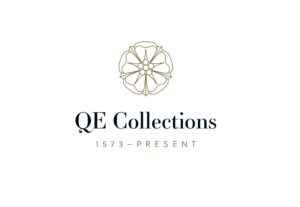 “I was stationed at Heathrow Airport from 2006 to 2023, spending most of my time dealing with cargo ‘exams’. Freight is where the majority of smuggled goods are found, not the passenger terminals. I had plenty of seizures of drugs and cigarettes, and huge amounts of counterfeit goods. Work continued through the Covid lockdown – no working at home for us – and that resulted in vast quantities of counterfeit face masks and Covid test kits being seized.”
“I was stationed at Heathrow Airport from 2006 to 2023, spending most of my time dealing with cargo ‘exams’. Freight is where the majority of smuggled goods are found, not the passenger terminals. I had plenty of seizures of drugs and cigarettes, and huge amounts of counterfeit goods. Work continued through the Covid lockdown – no working at home for us – and that resulted in vast quantities of counterfeit face masks and Covid test kits being seized.”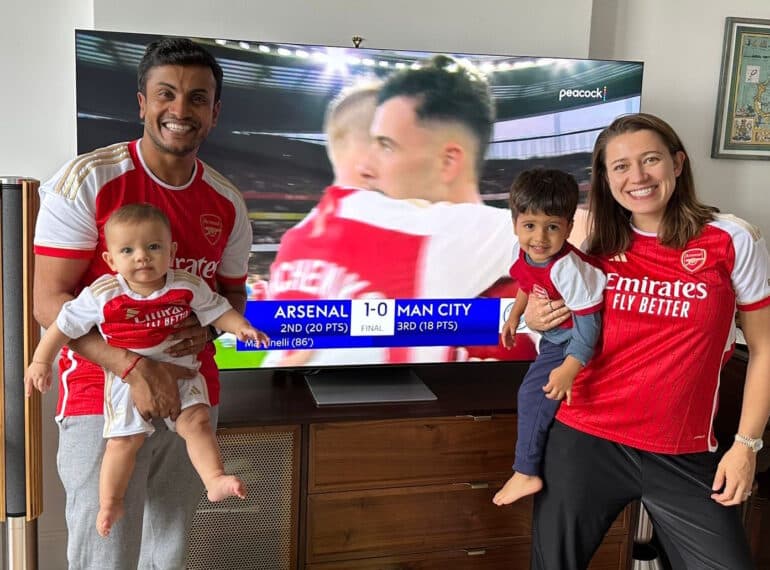
 “I’ve wanted to contribute to the School in a meaningful way for some time, and living in the US makes it a bit harder to join events there, so it felt serendipitous to receive an email for the 450 Club.” (The club, which was set up ahead of QE’s 450th anniversary last year, was for those making a contribution to the School of at least £450.)
“I’ve wanted to contribute to the School in a meaningful way for some time, and living in the US makes it a bit harder to join events there, so it felt serendipitous to receive an email for the 450 Club.” (The club, which was set up ahead of QE’s 450th anniversary last year, was for those making a contribution to the School of at least £450.) “For any younger OEs, I’d strongly recommend living and working in at least one different country. I am a firm believer that it firstly helps develop a world-view based on a broader set of experiences; secondly, it enables you to be a better leader of people across cultures and values; thirdly and most importantly, it is a lot of fun and should be seen as a great adventure!”
“For any younger OEs, I’d strongly recommend living and working in at least one different country. I am a firm believer that it firstly helps develop a world-view based on a broader set of experiences; secondly, it enables you to be a better leader of people across cultures and values; thirdly and most importantly, it is a lot of fun and should be seen as a great adventure!”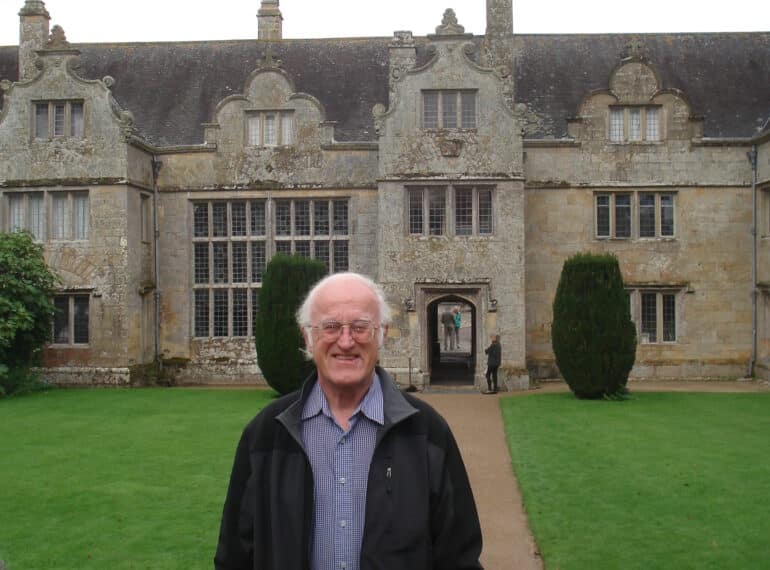
 The winner of multiple awards, including 19 teaching awards, Roger taught firstly at Yale, then at various universities in Canada over a 53-year career, with 1980–1983 spent at a hospital in Malawi. QE, he says, had a large effect on his life: he has penned his memories of the years he and his brother, Andrew, spend at Queen’s Road.
The winner of multiple awards, including 19 teaching awards, Roger taught firstly at Yale, then at various universities in Canada over a 53-year career, with 1980–1983 spent at a hospital in Malawi. QE, he says, had a large effect on his life: he has penned his memories of the years he and his brother, Andrew, spend at Queen’s Road.